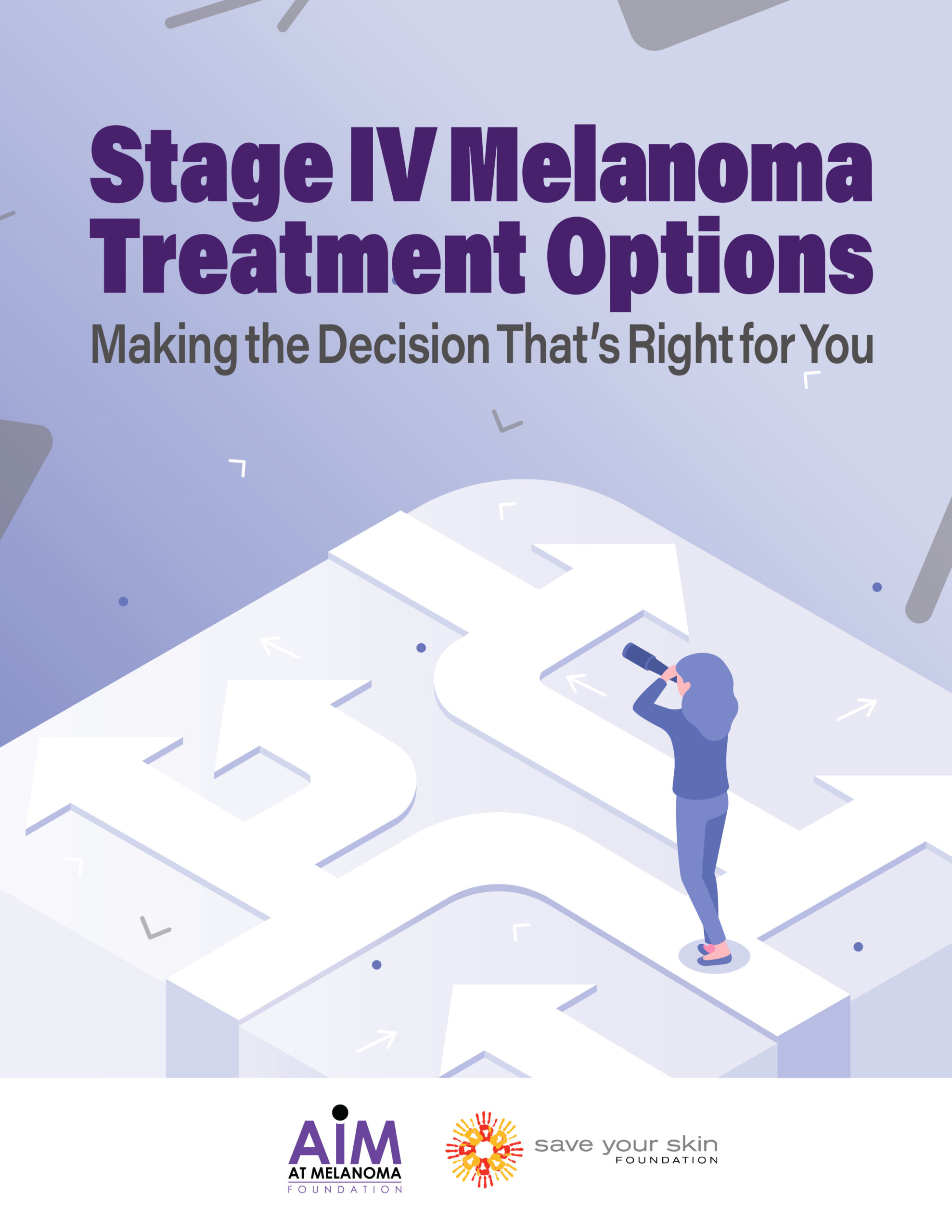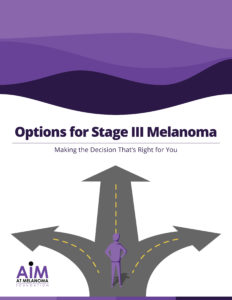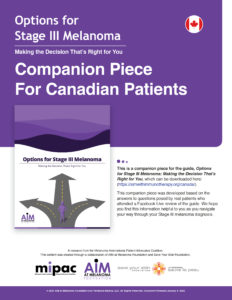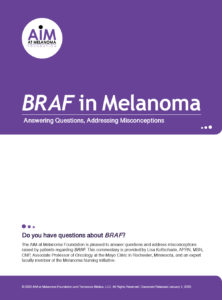Melanoma Nursing Initiative Resources Customized for the Canadian Audience
This page contains resources that have been customized for use by the Canadian healthcare professional.

This page contains resources that have been customized for use by the Canadian healthcare professional.
In this video series, Dr. D. Scott Ernst, MD, FRCPC Head, Division of Medical Oncology and Professor of Medicine at the London Regional Cancer Program, discusses the use of treatments in patients with melanoma. The videos address whether to treat, the risks versus benefits of treatment and the differences between the stages IIA, B and C. The content is customized for Canada. This content was recorded in March 2024.
What is stage II melanoma?
Is stage II melanoma at high risk for coming back?
How is stage IIA melanoma Treated?
How is stage IIB and C melanoma treated?
How do you weigh the benefits and risks of treatment versus no treatment?
What are the side effects of treatment?
In this video series, Dr Marcus Butler, Clinical Head of the Immune Monitoring Team at the Princess Margaret Cancer Centre, discusses sequencing strategies for Stage IV melanoma. The videos address strategies for neoadjuvant and adjuvant therapy, first-line and subsequent lines of therapy, single-agent and combination immunotherapy, BRAF-targeted therapy, the management of brain metastases, clinical trials, and management of refractory disease. The videos were recorded on August 17, 2023.
When should neoadjuvant or adjuvant therapy be considered in stage IV disease?
Which immunotherapy should be used for front-line BRAF wild-type patients?
Which combination should be used after progression post PD-1 therapy?
What is the role for BRAF-targeted therapy?
How should strategies be personalised for management of brain metastases?
Strategies for refractory disease
When should a clinical trial be considered?

The Decision-Support Tool has been updated to reflect changes in therapeutic options, including emerging options and longer-term data on established regimens.
We’d like to thank Taylor Tomco and Kathy Barnard from the Save Your Skin Foundation for their careful review of this content update.
The document addresses
Developed in collaboration with Save Your Skin Foundation.
In this video series, Bonnie Leung, MN-N (F)P, BC Cancer, Vancouver, discusses current and emerging perspectives on the use of combination immunotherapy in oncology. These videos, developed for the Canadian audience, discuss the rationale for combination therapy, the data supporting the combination approaches, patient selection for combination immunotherapy versus other options, managing the more complex side effects associated with this approach, as well as new strategies of combined immunotherapy. We hope that this content will be useful for you to select and manage the best immunotherapy regimens for your cancer patients.
Rationale for Combined Immunotherapy
What are the data to support the use of combination Immunotherapy?
Patient Selection for Combination Immunotherapy
Managing the Complex Adverse Effect Profile of Combination Immunotherapy
Emerging Strategies for Combination Immunotherapy
The Decision-Support Tool has been updated with information you need to know about outcomes for Stage III melanoma, long-term data for adjuvant therapies, and additional resources, including content specific for for caregivers.
Developed in collaboration with Save Your Skin Foundation.

Want to learn how to use the Stage III Decision-Support Tool? Peruse frequently asked questions about Stage III melanoma and learn how to use the support tool to guide your decision making.
Developed in collaboration with Save Your Skin Foundation.

In the resources provided below, the AIM at Melanoma Foundation provides answers to questions and addresses misconceptions raised by patients regarding BRAF in melanoma. The patient-directed resources address what BRAF is, the role of BRAF in melanoma, what BRAF mutational status means, testing for BRAF, and the implications of the test results for treatment planning. The answers are provided by Lisa Kottschade, APRN, MSN, CNP, Associate Professor of Oncology at the Mayo Clinic in Rochester, Minnesota, and an expert faculty member of the Melanoma Nursing Initiative.
We thank Novartis Pharmaceuticals for an unrestricted educational grant in support of this important educational initiative. We also thank Save Your Skin Foundation for review and customization of this content for the Canadian audience.

Print out this pamphlet, which provides Ms. Kottschade’s commentary for specific questions/statements about BRAF.
Click on the videos below to watch Ms. Kottschade’s commentary about BRAF. Below the videos, we have also listed some resources patients might find helpful as they navigate BRAF testing and management of their melanoma.